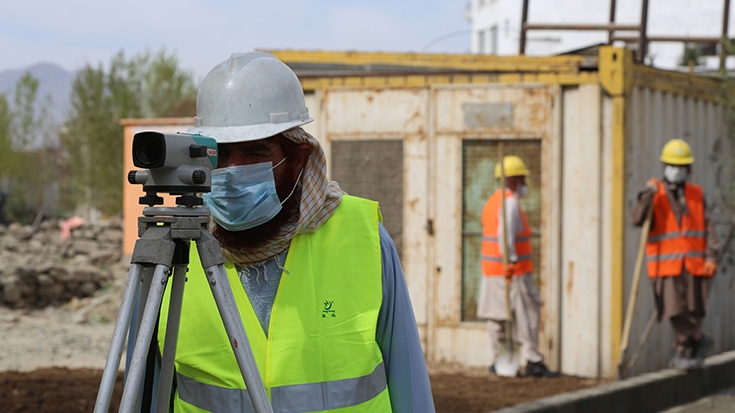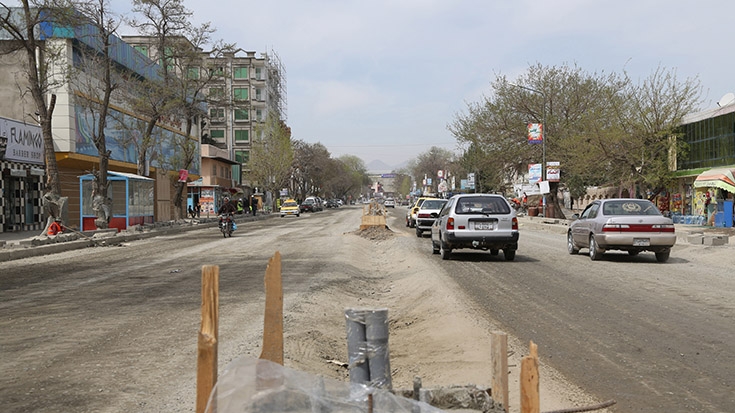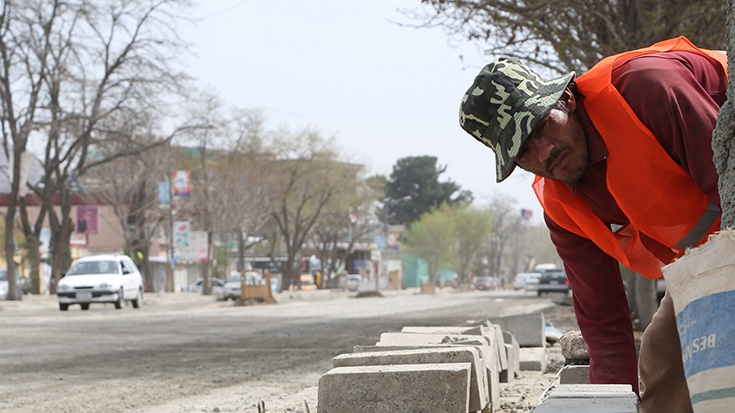KABUL CITY, Kabul Province – Sameer Waziri, 43, is pleased to be among the some 200 people recruited for a road reconstruction project in western Kabul. In spite of having been engaged in road construction for more than a decade in eastern Paktia Province, he was jobless upon returning to Kabul until being recruited for this project.
“I have a wife and 11 children. We were spending from our savings when I did not have a job. I had to go through economic hardship for a period of time,” says Sameer. “However, now I am paid $350 per month in this project.” According to Sameer, his subordinates are paid 350 AFN (just over $6) a day plus two meals.
Sameer underscores the role of such projects in creating employment opportunities: “In the absence of such projects, lots of people will remain jobless, which would take its toll on the overall unemployment rate.”
The project in which Sameer works as a supervisor is part of the Kabul Urban Transport Efficiency Improvement (KUTEI) Project. KUTEI is implemented by Kabul Municipality and supported by the Afghanistan Reconstruction Trust Fund (ARTF). The ARTF’s $90.5 million grant to KUTEI targets improvement of transport services through a package of interrelated interventions to build Kabul Municipality’s capacity.



